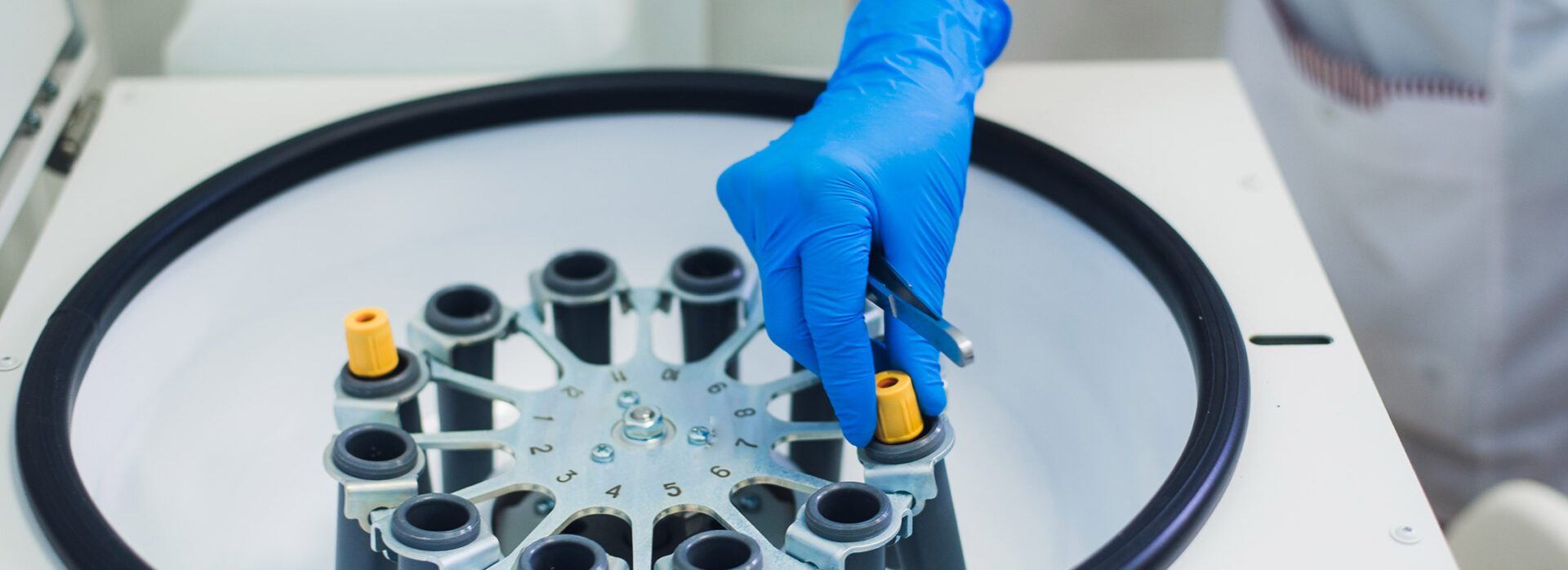The Benefits
PRP therapy and stem cell technology can help tissue heal and regenerate using the patient’s blood, injected into the damaged area (the spine). Once there, they can help generate healthy bone tissue by targeting areas that have been depleted by disease or injury. This process is known as stem cell differentiation. The stem cell injections also promote rapid regeneration of other tissues such as cartilage and tendons surrounding your spine. This treatment is more effective at treating spinal disc degeneration than steroids.
Because platelets contain anti-inflammatory cytokines, they help reduce inflammation in the affected area while stimulating and protecting new tissue growth. PRP therapy can help decrease swelling and pain and improve function and range of motion.
One of the benefits of stem cell differentiation is that it helps to promote new nerve growth. This can help improve nerve function in the spine and reduce numbness or tingling sensations.
The process of extracting PRP and white blood cells from your blood involves a special centrifugation process. This means that the risk of infection is significantly reduced compared to other types of injections.
#5 Shorter recovery time
Most people experience a significant improvement in their symptoms after just one or PRP treatment. Many patients can return to work and their normal activities very quickly.
#6 No surgical procedure required
Unlike other treatments that require surgery, PRP/SCT therapy can be performed on an outpatient basis using local anesthesia. This means minimal risk and no long recovery period associated with the treatment.
Contact Dr. Carter’s office today to schedule an appointment on our contact page or call 305.680.3527.
Spinal Conditions That Can be Managed Using PRP Therapy
#1 Osteoarthritis of the spine (also known as degenerative arthritis or spondylosis)
This is a common condition that occurs when the cartilage and bone tissue in your joints begin to wear away over time. It can lead to pain, stiffness, and loss of movement in one or more areas such as your knees, hips, and shoulders. Spinal osteoarthritis usually develops gradually, but it may also develop suddenly after an injury, such as falling on ice or slipping down stairs. Symptoms include stiffness around joints which becomes worse during activity; swelling in one area like a knee joint; cracking sounds coming from inside bones when moving them together; inability to straighten out completely due to limited range of motion at certain points along the spine.
#2 Degenerative disc disease (also known as intervertebral disk disease or IDD)
This condition occurs when one of the discs between your vertebrae bulges outwards due to weakening in that area. It usually starts with a small tear, which then causes fluid from inside the disc to seep out and irritate surrounding nerves causing pain and numbness. As time goes on, it can lead to a herniated or “slipped†disc where part of the disc is pushed into another area, such as behind your spinal cord or into an adjacent nerve root canal. Symptoms can vary depending on which disc is affected but typically include:
-
- Pain in the back, buttocks, or legs that worsens with activity.
- Numbness, tingling, or weakness in your limbs.
- A feeling of heaviness in one leg.
- Difficulty standing or walking for long periods.
#3 Herniated discs
This occurs when the softer inner part of the spinal disc squeezes out through a crack or tear in the tougher outer layer. When this happens, it can put pressure on nearby nerves and cause pain, numbness, tingling sensations, and muscle weakness. A herniated disc may not always cause symptoms, but when it does, they are usually felt along the path of the nerve that’s being pressed on.
#4 Osteoarthritis
This is a type of arthritis that’s caused by the breakdown and eventual loss of cartilage in your joints. When this happens, the bones begin to rub against each other, which can cause pain, stiffness, swelling, and reduced range of motion. In some cases, it can also lead to bony spurs (osteophytes) developing around the joint edges as well as changes in how the spine looks and feels when you touch it (known as kyphosis or dowager’s hump). Symptoms vary depending on which joint is affected but typically include pain and stiffness in your back, hips, or knees that makes it difficult to move around or do daily activities like walking up stairs or getting in and out of bed; a reduced range of motion due to stiffness from inflammation inside your joints; swelling in one or more joints (this may be accompanied by warmth); creaking sounds that occur when you’re moving.
#5 Fibromyalgia
This is a chronic pain condition where people experience widespread muscle aches, joint stiffness, and tender points throughout their body, which can make them feel exhausted all the time. It affects women more than men and tends to get worse over time if left untreated. Symptoms include:
Fatigue (a feeling of being tired even after sleeping), sleep problems such as difficulty falling asleep at night, waking up frequently during the night, or feeling restless when you do manage to sleep.
Mood changes like depression and anxiety as well as forgetfulness (known medically as “brain fogâ€)
Headaches that are often described as a dull ache on both sides of the head
Joint pain in areas like knees, hips, shoulders, and elbows may come with swelling.
Conclusion
It is evident that PRP therapy is an effective method of treating various spinal-related conditions. If you experience any of the mentioned symptoms of spinal conditions, you can visit Dr. Alicia Carter of Miami, a specialist in regenerative medicine and orthopedics.
Contact Dr. Carter’s office today to schedule an appointment on our contact page or call 305.680.3527.
